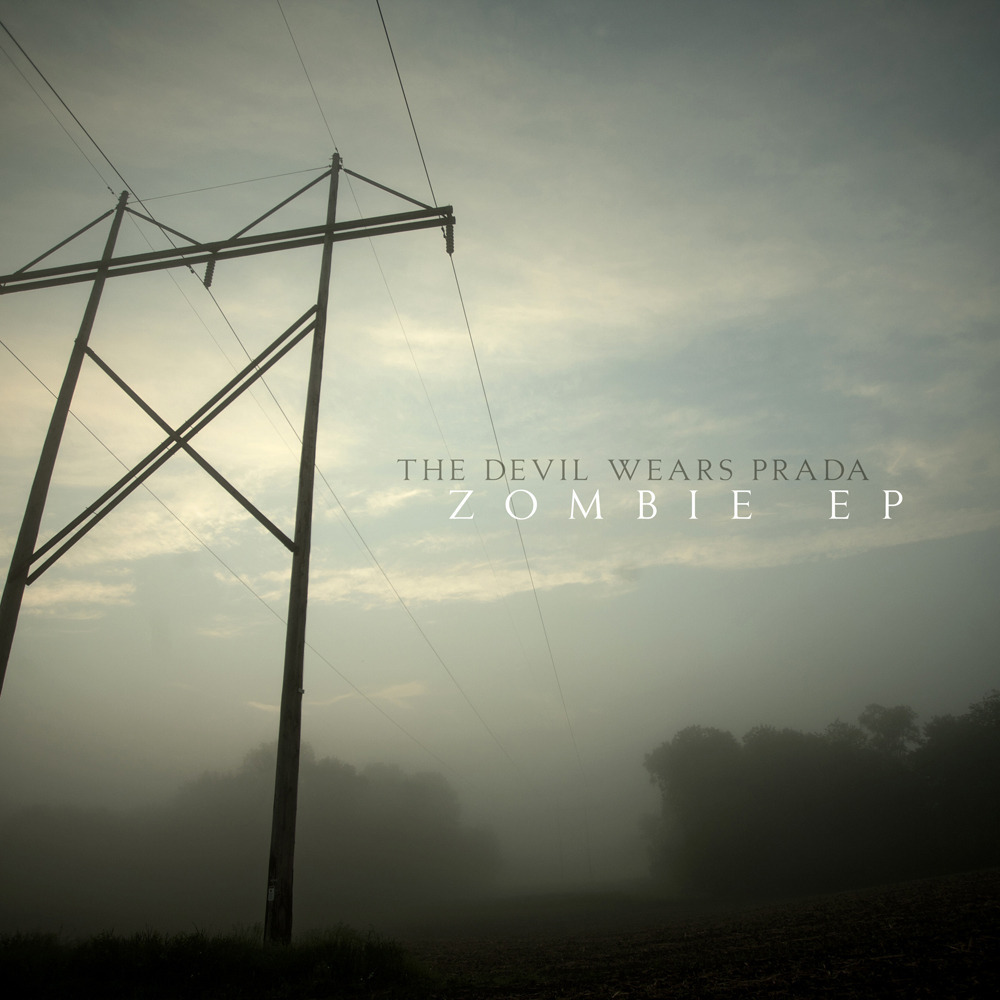Like I think a central state is needed for the first phase of the revolution, but the more brutal aspects is something I just don't want to do, even if I understand why they did them?
This passage from Blackshirts and Reds always sticks with me when I think about state violence in a revolutionary state:
The transforming effects of counterrevolutionary attack have been felt in other countries. A Sandinista military officer I met in Vienna in 1986 noted that Nicaraguans were "not a warrior people" but they had to learn to fight because they faced a destructive, U.S.-sponsored mercenary war. She bemoaned the fact that war and embargo forced her country to postpone much of its socio-economic agenda.
I feel like I read or listened to a more thorough elaboration of that somewhere, where Parenti talked more about the material programs that the Sandinistas had to sacrifice to survive in the face of reactionary terror, but I don't even know where to begin looking since what I remember isn't in the surrounding text in Blackshirts and Reds.
Yeah, Parenti refers to this as siege socialism and admonishes other leftists who engage in red bashing and regurgitate orthodox capitalist propaganda without taking into account the context and conditions that require a more iron-fisted approach to survive. Looking at you Chomsky.
But a real socialism, it is argued, would be controlled by the workers themselves through direct participation instead of being run by Leninists, Stalinists, Castroites, or other ill-willed, power-hungry, bureaucratic cabals of evil men who betray revolutions. Unfortunately, this "pure socialism" view is ahistorical and nonfalsifiable; it cannot be tested against the actualities of history. It compares an ideal against an imperfect reality, and the reality comes off a poor second. It imagines what socialism would be like in a world far better than this one, where no strong state structure or security force is required, where none of the value produced by workers needs to be expropriated to rebuild society and defend it from invasion and internal sabotage. The pure socialists' ideological anticipations remain untainted by existing practice. They do not explain how the manifold functions of a revolutionary society would be organized, how external attack and internal sabotage would be thwarted, how bureaucracy would be av oided, scarce resources allocated, policy differences settled, priorities set, and production and distribution conducted. Instead, they offer vague statements about how the workers themselves will directly own and control the means of production and will arrive at their own solutions through creative struggle. No surprise then that the pure socialists support every revolution except the ones that succeed
That's where, with the advent of the internet, we need to somehow establish and propagate a more unified global leftist body that could prevent war. But that's such an ungodly, huge undertaking and requires more time then we have left. Best bet is to join the IWW and continue to push them globally. Sadly, they have less teeth than they did in the past. As is the way unions seem to go...
This is partly why I think something like “revolutionary intercommunalism” might be a more viable path towards revolution around the world, and especially within the US. This is from Huey Newton’s “Intercommunalism” speech:
We believe that there are no more colonies or neocolonies. If a people is colonized, it must be possible for them to decolonize and become what they formerly were. But what happens when the raw materials are extracted and labor is exploited within a territory dispersed over the entire globe? When the riches of the whole earth are depleted and used to feed a gigantic industrial machine in the imperialist’s home? Then the people and the economy are so integrated into the imperialist empire that it is impossible to “decolonize,” to return to the former conditions of existence.
If colonies cannot “decolonize” and return to their original existence as nations, then nations no longer exist. And since there must be nations for revolutionary nationalism or internationalism to make sense, we decided that we would have to call ourselves something new.
We say that the world today is a dispersed collection of communities. A community is different from a nation. A community is a small unit with a comprehensive collection of institutions that serve to exist a small group of people. And we say further that the struggle in the world today is between the small circle that administers and profits from the empire of the United States, and the peoples of the world who want to determine their own destinies.
We call this situation intercommunalism. We are now in the age of reactionary intercommunalism, in which a ruling circle, a small group of people, control all other people by using their technology.
At the same time, we say that this technology can solve most of the material contradictions people face, that the material conditions exist that would allow the people of the world to develop a culture that is essentially human and would nurture those things that would allow people to resolve contradictions in a way that would not cause the mutual slaughter of all of us. The development of such a culture would be revolutionary intercommunalism.
I like this. This is a fitting description of the current situation. The biggest hurdle is creating and nurturing this revolutionary intercommunalism.
I think that in the existence of most nations, there is still a large sense of independence and nationalism that occurs through state-run/funded propaganda. Until that aspect of the state is eliminated, how do you grow a sense of unity among the global proletariat? For every ML or anarchist that has the ability to connect with individuals globally, there seems to be three fascists that instill nationalist beliefs globally.
From Brexit, to the response of the European migrant crisis, the coup of Bolivia, or Trump's presidency, there do not appear to be enough international prole victories for how quickly global mobilization needs to occur, to divert humanity from it's rapidly approaching demise.
I like this. This is a fitting description of the current situation. The biggest hurdle is creating and nurturing this revolutionary intercommunalism.
There are some groups out there pursuing something similar, and often connected to Bookchin's ideas regarding 'Communalism'. Rojava is one project most people here are aware of, but there are others with related projects like Fearless Cities, Symbiosis Revolution, and Black Socialists in America, to name a few. Maybe not directly related, but Vietnam and Cuba are both also pursuing things like cooperative farms and businesses that are more decentralized and community-based, and could become an important part of that global effort.
I think that in the existence of most nations, there is still a large sense of independence and nationalism that occurs through state-run/funded propaganda. Until that aspect of the state is eliminated, how do you grow a sense of unity among the global proletariat? For every ML or anarchist that has the ability to connect with individuals globally, there seems to be three fascists that instill nationalist beliefs globally.
I think you're right, but I also think that technology, combined with neoliberalism's quest to spread capitalism across borders, has maybe created a backlash and served to weaken nationalist sentiment among young people. So, opposition to neoliberalism and transnational online communities (like Kpop comrades?) could serve as a basis for a global movement. I think the threat posed by global warming also presents an opportunity for people to band together against a common enemy. It's going to take a lot of work, though.
From Brexit, to the response of the European migrant crisis, the coup of Bolivia, or Trump’s presidency, there do not appear to be enough international prole victories for how quickly global mobilization needs to occur, to divert humanity from it’s rapidly approaching demise.
Not yet, but there is some room to be hopeful. As bad as things are, there are still people who are willing to fight back in places like Bolivia, Paris, Portland, Latin America, etc. I think the will is there, but the left is poorly organized at an international level, and we need to change that as soon as humanly possible.
My experience at OWS imbued me with the feeling that full horizontalism is not a practical mode of organizing a campaign against forces which are as organized and entrenched as the bourgeoisie of the imperial core. Not to say that a more anarchist method of organizing is useless. In fact, we had at least a dozen separate "committees" which operated in practice as autonomous affinity groups, and these committees did a tremendous job providing meals, taking care of sanitation, making sure everyone had dry clothing, directing marches, etc.
There were several tasks where autonomy and a lack of hierarchy posed challenges however. We had an autonomous group running security, but still experienced many cases of personal property theft, as well as a handful of cases of abuse. We had no unified media strategy and the reactionary press was able to interview hundreds of people who were either unprepared or disingenuous. We were unable to establish a liaison with anyone in the municipal government.
More importantly, we were unable to make any longer term strategic plans, organize anything which required an element of secrecy or surprise, or establish delegates or designated points of contact between the dozens of protest encampments established across the country.
The strictly horizontal nature of the movement had its upsides and downsides. It allowed the movement to swell extremely quickly, but the more the movement swole, the less agile and focused the movement became. Individuals were able to respond to individual situations rapidly, but the movement was completely incapable of making decisions, producing an official line, or reacting to shifting media narratives with anything approaching the urgency which was necessary. As an alternative to working out our internal contradictions, we left these issues unaddressed.
I think personally, I have ended up in the ML camp for a handful of reasons. I think it is important for a movement's leadership to be grounded in theoretical principles (informed by the material conditions, not dogma), while at the same time it is unreasonable to expect the entire proletariat to "read theory." I think it is important to have people designated as leaders, not for the sake of power, but for the sake of having a designated source of truth and direction instead of having hundreds of autonomous factions paving a course forward without any coordination. I think it is important to be able to establish a cadre which can plan more legally perilous forms of direct action without exposing them to the risks which come with planning such actions in the open.
Anarchists are generally skeptical of anything which involves hierarchy, let alone the establishment of new forms of hierarchy. They are also generally skeptical of any group of influential people meeting in secret to conspire among themselves. They should be. The more lines of separation there are from a movement's leaders and the masses, the farther away they are positioned from the front lines, the less responsive they will be. In its worst case you end up with the historical cliche of liberals arguing in a room about the contours of their new shiny constitution while the proletariat bleeds at the barricades. But I don't think there is a way to avoid building some degree of leadership and command structures entirely.
I agree with everything you've said about horizontalist organizing and have experienced the same both from occupy and CHAZ/CHOP. However I just don't believe that there's an alternative for any sort of popular insurrection type movement.
One of the key successes of Lenin was that they had among other socialist parties, a political party that was already a part of of the legislature that also happened to have a paramilitary wing. I highly doubt every action these paramilitary wings took were done by members of the centralist party or even really guided by them, chaotic protests and uprising will always have a horizontalist aspect to them by virtue of their size. Especially in contemporary western nation's, leadership is earned not given just because you call yourself a leader.
Overall, I think you need officials with political legitimacy who have governed some set of community organization for a long time to have ties to democratic centralist principals. But without that initial set of legitimacy, it very quickly ends up being viewed by outsiders as being nothing other than a LARP. At the CHAZ I saw people saying they made decisions by democratic centralism and literally no one gave a shit, but when Sawant and other established community leaders who are a part of democratic centralist organizations spoke, the movement very quickly picked up what they were offering as a reasonable strategy for things.
The point here is, if you're an ML/Trot and are a part of an ML/Trot party, your first goal absolutely needs to be establishing substantial amounts of respect and legitimacy within your community. Should you have that, you'd be incredibly successfully, but none of the existing ML organizations within the US have anywhere close to that level of legitimacy that they can command a movement predominantly driven by collective anger in general of the state of the world. Current elected democratic socialists also need to seriously consider abandoning their horizontalist approach and build a centralist organization to more effectively strategize.
I kind of don't understand why contemporary anarchists have supplanted federalist principles with horizontal absolutism.
I kind of wonder if it's an internet thing. People on the internet love not reading and equally love building their beliefs around snappy platitudes. Anarchism means more than just "abolish hierarchies" but the internet is full of baby Anarchists who seem to stop there.
I think it's partly the very individualist aesthetic that has permeated anarchisms since, like the 90s onward. There's an increasingly egoist stance of fetishizing ones immediate lived bubble of experience, with the trade-off of not thinking and organizing on bigger scales.
The strictly horizontal nature of the movement had its upsides and downsides. It allowed the movement to swell extremely quickly, but the more the movement swole, the less agile and focused the movement became. Individuals were able to respond to individual situations rapidly, but the movement was completely incapable of making decisions, producing an official line, or reacting to shifting media narratives with anything approaching the urgency which was necessary. As an alternative to working out our internal contradictions, we left these issues unaddressed.
You seem to have a lot of experience with this, so correct me if I'm way off base, but it sounds like there needs to be a lot more discussion and work put into analyzing organizational structures to determine what is effective and what isn't, while also following ethical guidelines as much as possible to avoid unnecessary/unjust hierarchies and maintain democratic decision making? Seems to me like this is possible, but would require better knowledge of how to operate within those organizational structures, and I don't really see that being discussed much in online leftist spaces. Technology could also help, with things like DAOs serving as an organizational backbone that is less reliant on centralized authority.
Reminds me of Valve Software and how they're finding that their flat organization style is really hurting them even though informal structure has started to develop anyways. It's purged any notion I had that such a pure organizational style can work, at least in their context.
Anyway, you have some good thoughts here. You're essentially restating what Lenin said regarding the believe in the need for a vanguard party or organization (well duh, he said he was an ML). Also, just thinking about organizational behavior and structures, the Marine Corps always put out this narrative that they were at the same time a top down command structure, but one that was proud that the small unit leadership could make decisions without the need from high level command (yeah yeah, imperialist foot solder scum, and so on and so on).
You can be a Marxist Leninist and also criticize the excess of violence that occurred in the 20th century. Some Orthodox MLs will disagree but at least in the West advancements in police and prison abolition theory have been adapted into Marxism-Leninism and if there is a dictatorship of the proletariat established in the West it won't have massive gulags
The material conditions of North america and Western Europe are vastly different than the late Russian and Chinese empires for sure.
quite literally that. All the Forum says is tankie, anarkiddie, Read theory, bread book, this good, this bad, I just wanna abolish capitalism for God's sake!
I am a Marxist-Leninist and I don't want to hurt anybody, I don't want violence of any kind. Although I acknowledge its historical necessity and unavoidability as the capitalist-imperialist mode of production breaks down.
I would rather not have a gulag system. I acknowledge that there will have to be military conflicts that will break our morals. Still in peacetime, there needs to be something of a Bill of Rights and legal process as protection.
Of course! If you're so inclined, please read the Constitution of the USSR. It's got a lot of cool stuff in there
The options are prisons, or just shooting people. And if we choose prisons, in a war time economy, we need to have them working too.
Or re-education camps, they have an extremely negative connotation, but it is the high road, especially if we have the convictions of our own ideology.
I say we set up a reservation somewhere, like Death Valley, and we name it "Galt's Gulch" and send all the hardcore capitalists who refuse to live under socialism there. While they are confined to the reservation, they would be left alone to figure out how to survive, for the most part. Maybe the free market will save them?
I very much believe the state has to be dissolved and I kinda feel controlling the state dances on a razor's edge, for reasons like, complacency threatening the revolution.
But i also know there has to be flexibility in the theory to move towards a future we're working on. I would never sell out a ML or tankie no matter how much we fight.
I wouldn’t consider this “brutality” though. I’d consider it self-defense, as long as it is guided by necessity and not by revenge or malice.
kinda unrelated to your post, but i read the words "oppositional defiant disorder" and instantly thought like "yeah i have no idea what this disorder is but based on the name alone I probably have it"
i mean i think this dislike of authority is a part of it, but i get like really angry over dumb shit, i get road rage at the drop of a dime, i constantly fuck with people on the road and in video games, and like almost on a daily basis i get in arguements with my dad. idk maybe its an actual disorder or maybe im just a fucking asshole
Believe me, it's a real thing, Source: I have worked in a preschool with kids with special needs and have had a 4 year old spit in my face.
If you agree with the need of a state to combat reactionary elements and think that when the proletariat state looses it's utility in that purpose it should dissolve that doesn't put you in a third way. That just makes you a marxist leninist.
Look this is real easy if you simplify it: the end stage of Marxism is anarcho-communism. We’re going to the same place. We just disagree about how long the trip will take, and the number of stops along the way.
I want to stop at Carhenge but my stupid sister doesn't want to. This road trip sucks.









